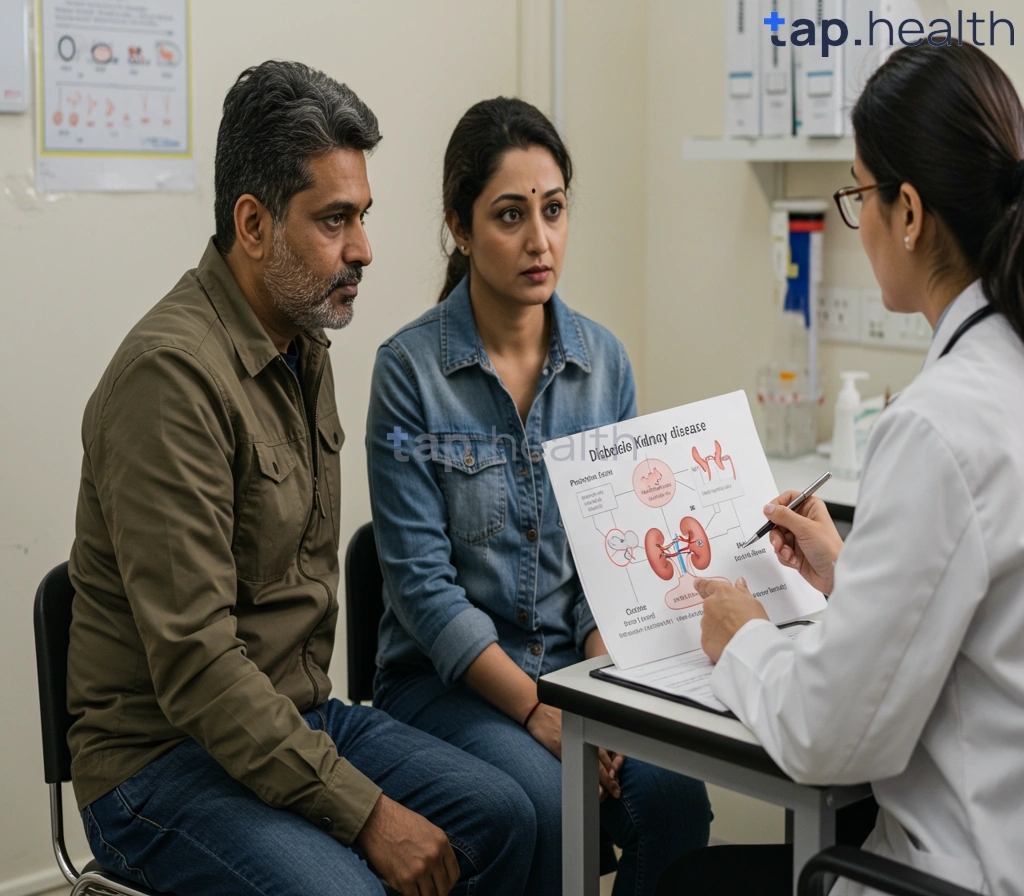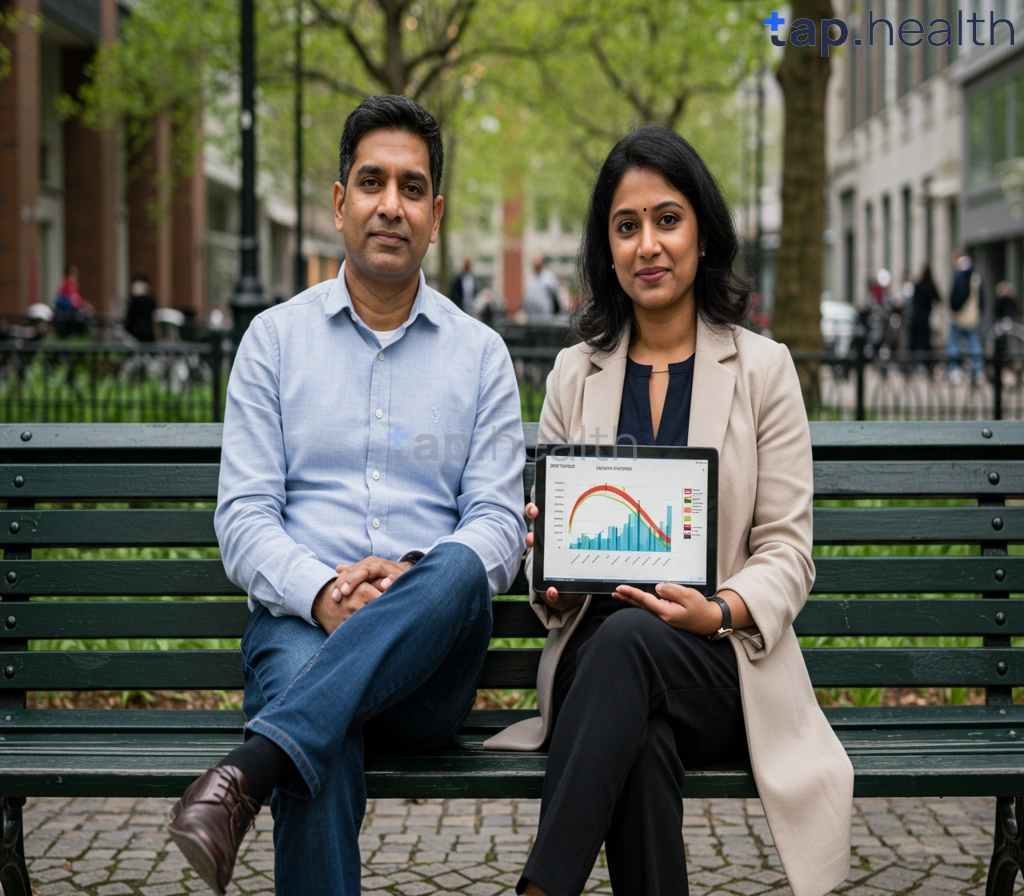Table of Contents
- Understanding Diabetes & Infection Risks
- How Infections Affect People with Diabetes
- Boosting Your Immunity: Preventing Infections with Diabetes
- Diabetes & Infections: A Guide to Safe Practices
- Common Infections in Diabetics & Their Treatment
- Frequently Asked Questions
- References
Living with diabetes comes with unique challenges, and understanding how to protect yourself from infections is crucial for managing your health. This is especially important because people with diabetes are more susceptible to infections than those without. In this blog post, we’ll explore the connection between Diabetes & Infections: Protecting Yourself from Germs, covering practical tips and strategies to significantly reduce your risk. We’ll delve into why this increased susceptibility exists and what proactive steps you can take to stay healthy. Let’s get started on learning how to safeguard your well-being!
Understanding Diabetes & Infection Risks
Diabetes significantly increases your susceptibility to infections. This heightened risk is a serious concern, especially in warm, humid climates prevalent across many Indian and tropical countries. A staggering 61% of people with diabetes are aged between 20 and 64 years, a crucial working-age demographic, according to data from the International Diabetes Federation. This highlights the widespread impact and the need for proactive infection prevention. The remaining 39% are aged 65+, a group already more vulnerable to infections.
Why are People with Diabetes More Prone to Infections?
High blood sugar levels create a breeding ground for bacteria and fungi. This impaired immune response makes it harder for your body to fight off infections effectively. Common infections like urinary tract infections (UTIs), skin infections, and foot infections are more frequent and severe in individuals with diabetes. In tropical climates, the risk is further amplified by environmental factors like humidity and the prevalence of certain infectious agents. Even seemingly minor wounds can become serious infections.
Protecting Yourself: Practical Tips for Indian and Tropical Climates
Maintaining good blood sugar control is paramount. This includes following your prescribed diet and medication regimen diligently. Practicing meticulous foot hygiene is crucial, especially in hot and humid conditions. Regularly inspect your feet for any cuts, blisters, or sores, and seek immediate medical attention if you notice anything unusual. Staying hydrated helps flush out toxins and supports your immune system. Additionally, wearing appropriate footwear that provides adequate protection from injury is essential, especially in outdoor settings. Remember, regular check-ups with your doctor are vital for early detection and management. Don’t hesitate to seek medical attention at the first sign of any infection. For more information on managing your diabetes while traveling, check out our article on Traveling with Diabetes: Essential Tips for a Safe & Healthy Journey. It’s important to remember that diabetes itself is not contagious; to learn more about common misconceptions, read our blog on Can Diabetes Be Transmitted? Understanding the Facts and Myths.
How Infections Affect People with Diabetes
Diabetes significantly weakens the body’s defenses, making individuals more susceptible to infections. This increased vulnerability stems from several factors. High blood sugar levels create a breeding ground for bacteria and fungi, hindering the body’s ability to fight off pathogens effectively. Furthermore, nerve damage (neuropathy), a common complication of diabetes, can reduce sensation, delaying the recognition of infections like foot ulcers, which are particularly prevalent in hotter, humid climates common to many Indian and tropical countries.
The Impact of High Blood Sugar
High blood sugar, or hyperglycemia, directly impairs the immune system’s function. White blood cells, crucial for fighting infection, become less effective at clearing bacteria and viruses. This leaves individuals with diabetes more prone to developing infections, even from minor cuts or abrasions. These infections can range from skin infections to more serious conditions affecting the urinary tract, lungs, or even the bloodstream. The longer blood sugar levels remain elevated, the greater the risk. Understanding how diabetes affects blood flow is also crucial, as impaired circulation can hinder the body’s ability to deliver immune cells to infection sites.
Specific Infections in Tropical Climates
In regions with warm and humid climates like India and other tropical countries, fungal infections are particularly problematic for people with diabetes. Conditions like athlete’s foot and candidiasis (yeast infections) are more likely to occur and become more severe. Moreover, the prevalence of insect-borne diseases adds another layer of risk, as these infections can further compromise the already weakened immune system. Prompt medical attention is crucial in these cases. Nearly 30% of people with diabetes develop diabetic nephropathy (kidney disease), further increasing their vulnerability to infections due to compromised kidney function and immune response.
Protecting Yourself
Maintaining good blood sugar control is paramount in preventing infections. This includes following a healthy diet, regular exercise, and adhering to prescribed medication. Practicing meticulous foot care, especially regular cleaning and inspection for any cuts or sores, is vital for individuals with diabetes, particularly in tropical environments where fungal infections are more prevalent. Seeking immediate medical attention for any signs of infection is crucial to prevent complications. Regular check-ups with your doctor will also help in early detection and management of potential health issues. It’s also important to understand the underlying causes of diabetes; for instance, is diabetes caused by a virus or bacteria? This understanding can contribute to better preventative measures.
Boosting Your Immunity: Preventing Infections with Diabetes
The global rise in diabetes is alarming, with the number of people living with the condition increasing from 200 million in 1990 to a staggering 830 million in 2022, according to the World Health Organization (WHO). This dramatic increase highlights the urgent need for effective strategies to manage diabetes and mitigate its associated risks, particularly the heightened susceptibility to infections. For individuals in Indian and tropical countries, where infectious diseases are prevalent, this is especially crucial.
Understanding the Increased Risk
People with diabetes are more prone to infections due to several factors. High blood sugar levels impair immune function, making it harder for the body to fight off bacteria, viruses, and fungi. Poor circulation, often a complication of diabetes, can also slow wound healing and increase the risk of infection. Common infections in tropical climates, such as skin infections, urinary tract infections (UTIs), and respiratory infections, pose a significant threat to those with diabetes. Early detection and prompt treatment are critical.
Practical Steps for Enhanced Protection
In hot and humid climates prevalent in many Indian and tropical countries, maintaining good hygiene is paramount. This includes meticulous foot care to prevent fungal infections, regular handwashing to avoid bacterial spread, and staying up-to-date on vaccinations. Careful monitoring of blood glucose levels is also essential for minimizing the risk of complications. A balanced diet rich in fruits, vegetables, and whole grains supports a strong immune system. Regular exercise and stress management techniques further enhance overall health and resilience against infections. For more specific tips on boosting immunity while managing diabetes, check out our guide: Boosting Immunity While Managing Diabetes.
Seeking Expert Care
Consulting with a healthcare professional regularly is vital. They can provide personalized advice on managing blood sugar levels, preventing infections, and addressing specific concerns. Early intervention is key to managing diabetes effectively and minimizing the risk of serious complications. Don’t hesitate to seek medical attention if you experience any signs of infection, no matter how minor they may seem. Your health is your priority; proactive care can significantly improve your quality of life. Remember that managing diabetes also involves protecting your heart health. Learn more about Protecting Your Heart from Diabetes: 5 Essential Steps.
Diabetes & Infections: A Guide to Safe Practices
Understanding the Increased Risk
People with diabetes are more susceptible to infections than those without. High blood sugar levels weaken the immune system, making it harder for the body to fight off bacteria, viruses, and fungi. This vulnerability is heightened in warmer, tropical climates prevalent in India and other tropical countries, where infectious diseases are more common. Furthermore, research shows that smokers with diabetes face a significantly increased risk of mortality, with rates doubled due to cardiovascular complications that can further compromise immune function. Managing diabetes effectively is crucial in mitigating this risk. For more comprehensive strategies, you might find our guide on 10 Proven Tips for Effective Diabetes Management helpful.
Practical Steps for Prevention
Maintaining good hygiene is paramount. Regular handwashing with soap and water, especially before meals and after using the restroom, is vital in preventing the spread of infections. Proper wound care is also essential; even minor cuts and scrapes can become serious infections in individuals with diabetes. Seek immediate medical attention for any signs of infection, such as redness, swelling, or pus. Prompt treatment is key to preventing complications. Pay close attention to foot care – regular inspection for cuts, blisters, or sores is crucial to avoid serious foot infections, a common complication for people with diabetes in hot and humid climates.
Regional Considerations and a Call to Action
In India and other tropical regions, awareness of infectious disease risks, such as dengue fever and malaria, is paramount for people with diabetes. Consult your doctor about appropriate vaccinations and preventative measures. Regular checkups and diligent self-care are essential components of diabetes management, significantly reducing your risk of infection. As you age, managing diabetes presents unique challenges. For insights and solutions, refer to our article on Managing Diabetes as You Age: Challenges and Solutions. Schedule an appointment with your doctor today to discuss a personalized plan for managing your diabetes and protecting yourself from infections.
Common Infections in Diabetics & Their Treatment
Foot Infections: A Major Concern
Diabetes significantly increases the risk of various infections, particularly in the lower extremities. Nearly 15% of diabetics experience foot ulcers in their lifetime, highlighting the critical need for proactive foot care. These ulcers, often stemming from minor injuries or poor circulation, can easily become infected, leading to serious complications including gangrene and potentially requiring amputation. In hot and humid climates prevalent in many Indian and tropical countries, the risk of foot infections is even higher due to increased sweating and exposure to pathogens. Prompt treatment is crucial. Signs of infection include increased pain, swelling, redness, warmth, and pus. Seek immediate medical attention if you notice any of these symptoms.
Other Common Infections
Beyond foot infections, diabetics are also more susceptible to urinary tract infections (UTIs), skin infections, and respiratory infections. High blood sugar levels impair the immune system, making individuals more vulnerable to bacterial and fungal infections. Maintaining good hygiene, including regular handwashing, is vital in preventing these infections. Proper wound care is also essential, especially for those with existing cuts or sores. In tropical climates, where fungal infections are prevalent, paying close attention to skin health is paramount. Since the immune system is compromised, it’s important to understand Are Type 1 Diabetics Immunocompromised?
Treatment and Prevention
Treatment typically involves antibiotics or antifungal medications, depending on the type of infection. However, prevention is key. Regular checkups with a doctor, including foot examinations, are crucial for early detection and management of infections. Diabetics should also maintain strict blood sugar control through diet, exercise, and medication as prescribed by their physician. In India and other tropical regions, specific attention should be paid to footwear choices to prevent injury and promote proper ventilation to reduce sweating and fungal growth. Consult your doctor or a diabetes specialist for personalized advice and care. Remember to discuss any medication concerns with your doctor, including antibiotics. For example, you might want to research Can Diabetics Take Antibiotics?
Frequently Asked Questions on Diabetes & Infections: Protecting Yourself from Germs
Q1. How does diabetes increase the risk of infections?
High blood sugar weakens the immune system, making individuals with diabetes more vulnerable to bacterial and fungal infections. This is further complicated by neuropathy, which reduces the ability to detect infections.
Q2. What types of infections are people with diabetes more prone to?
Diabetics are at a higher risk of developing various infections, including urinary tract infections (UTIs), skin infections, and foot ulcers.
Q3. What steps can I take to reduce my risk of infections if I have diabetes?
Maintaining good blood sugar control through diet, medication, and exercise is key. Meticulous foot hygiene, wearing appropriate footwear, and seeking prompt medical attention for any signs of infection are also crucial.
Q4. How do tropical climates increase infection risk for diabetics?
Warm, humid climates common in tropical regions create ideal conditions for bacterial and fungal growth, increasing the risk of infection for people with diabetes. The prevalence of insect-borne diseases also adds to this risk.
Q5. How important are regular checkups for managing infection risk with diabetes?
Regular checkups are vital for early detection and management of infections and other diabetic complications. Early detection significantly minimizes the risk of serious health consequences.
References
- A Practical Guide to Integrated Type 2 Diabetes Care: https://www.hse.ie/eng/services/list/2/primarycare/east-coast-diabetes-service/management-of-type-2-diabetes/diabetes-and-pregnancy/icgp-guide-to-integrated-type-2.pdf
- What is Diabetes: https://www.medschool.lsuhsc.edu/genetics/docs/DIABETES.pdf




